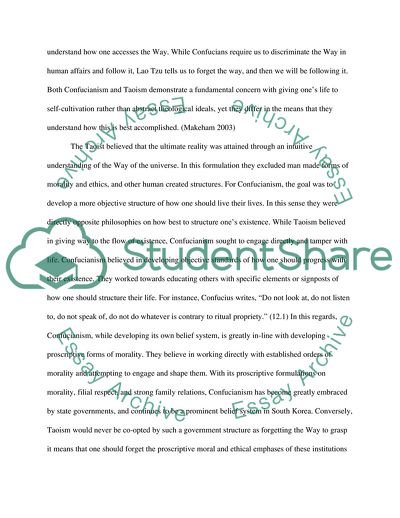Cite this document
(Confucianism Philosophical System Coursework Example | Topics and Well Written Essays - 2000 words, n.d.)
Confucianism Philosophical System Coursework Example | Topics and Well Written Essays - 2000 words. https://studentshare.org/philosophy/1739905-confucianism
Confucianism Philosophical System Coursework Example | Topics and Well Written Essays - 2000 words. https://studentshare.org/philosophy/1739905-confucianism
(Confucianism Philosophical System Coursework Example | Topics and Well Written Essays - 2000 Words)
Confucianism Philosophical System Coursework Example | Topics and Well Written Essays - 2000 Words. https://studentshare.org/philosophy/1739905-confucianism.
Confucianism Philosophical System Coursework Example | Topics and Well Written Essays - 2000 Words. https://studentshare.org/philosophy/1739905-confucianism.
“Confucianism Philosophical System Coursework Example | Topics and Well Written Essays - 2000 Words”. https://studentshare.org/philosophy/1739905-confucianism.


